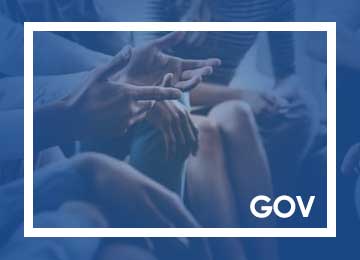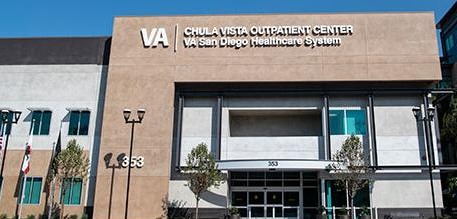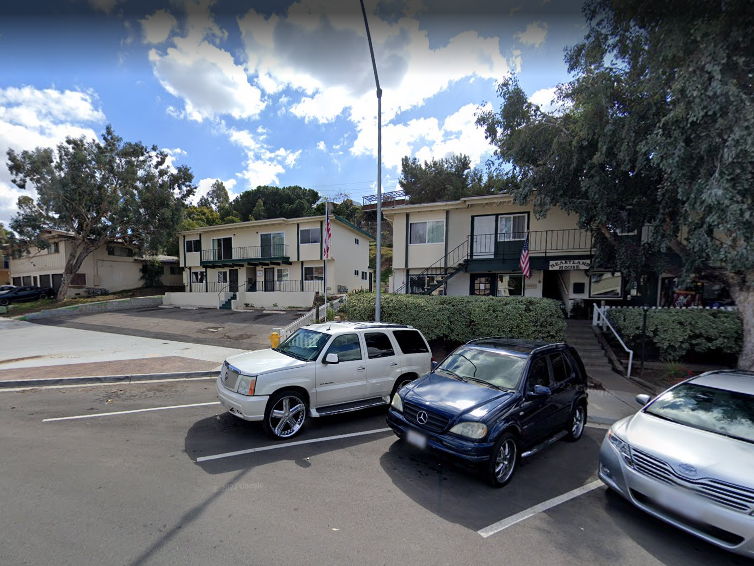US Marine Corps

Contact Details
-
Name:US Marine Corps
-
Address:4025 Tripoli Avenue
San Diego, CA - 92140 -
Phone:619-524-1912
-
Email:
-
Website:
Description
There are currently state and federally funded or sponsored drug and alcohol treatment centers in the state of California
Questions & Answers
Help others like you find out more about US Marine Corps. Do you know the answers to any of these questions? Contribute now and help others like you.
What kinds of care do they offer?
-
Substance use treatment
Refers to a broad range of activities or services, including identification of the problem (and engaging the individual in treatment); brief interventions; assessment of substance abuse and related problems including histories of various types of abuse; diagnosis of the problem(s); and treatment planning, including counseling, medical services, psychiatric services, psychological services, social services and follow-up for persons with alcohol or other drug problems (Institute of Medicine, 1990).
What types of opioid treatment do they provide?
-
Accepts clients using MAT but prescribed elsewhere
What types of treatment approaches do they offer?
-
Cognitive behavioral therapy
Involves recognizing unhelpful patterns of thinking and reacting, and then modifying or replacing these with more realistic or helpful ones. The therapy can be conducted with individuals, families, or groups, and clients are generally expected to be active participants in their own therapy.
-
Telemedicine/telehealth therapy
The ability for healthcare providers, working from a distance using telecommunications technology, to communicate with patients, diagnose conditions, provide treatment, and discuss healthcare issues with other providers to ensure quality healthcare services are provided. Other names used for this treatment approach are: e-medicine, e-therapy, e-psychiatry, and telepsychiatry.
-
Substance use disorder counseling
A short-term treatment that has been generalized for a variety of disorders including opiate drug dependence and cocaine abuse. The therapy includes supportive techniques which encourage the patient to discuss personal experiences, and expressive techniques, which enable the patient to work through interpersonal relationship issues and gain greater self-understanding.
-
Trauma-related counseling
Cognitive behavior techniques adapted for clients suffering from post-traumatic stress disorder (PTSD) and other effects of abuse and trauma.
-
Brief intervention
A short-term intervention, usually one to five sessions, for substance abusers who are not yet dependent.
-
Motivational interviewing
A counseling approach which acknowledges that many people experience ambivalence when deciding to make changes. Its aim is not to focus immediately on the action of changing, but to work to enhance motivation to change.
-
Relapse prevention
A cognitive behavioral therapy developed for the treatment of problem drinking and adapted later for cocaine addicts. Cognitive behavioral strategies are based on the theory that learning processes play a critical role in the development of maladaptive behavioral patterns. Individuals learn to identify and correct problematic behaviors. Relapse prevention encompasses several cognitive behavioral strategies that facilitate abstinence as well as provide help for people who experience relapse.
-
Smoking permitted in designated area
A designated area in which smoking is permitted.
What type of setting is this location?
-
Outpatient
Describes patients who receive treatment services without an overnight stay at a treatment facility or hospital.
-
Intensive outpatient treatment
-
Regular outpatient treatment
Who is responsible for the operation of this facility?
-
Department of Defense
Responsible for providing the military forces needed to deter war and protect the security of our country.
-
Federal Government
What types of license or certifications or accreditation does this facility posses?
-
Commission on Accreditation of Rehabilitation Facilities (CARF)
An independent non-profit accreditor of health and human services.
What types of payment or funding do they accept?
-
No payment accepted
What specific groups are treated here?
-
Clients with co-occurring mental and substance use disorders
Facility has a program or group specifically tailored for persons with co-occurring mental and substance abuse disorders.
-
Active duty military
Facility has a program or group specifically tailored for active duty military persons.
-
Members of military families
Facility has a program or group specifically tailored for Military families.
-
Clients who have experienced trauma
Facility has a program or group specifically tailored for persons who have experienced trauma.
-
Clients who have experienced intimate partner violence, domestic violence
Facility has a program or group specifically tailored for persons who have experienced intimate partner violence, domestic violence.
What ancillary services are offered at this facility?
-
Case management service
Helps people arrange for appropriate services and supports through a case manager who monitors the needs of clients/patients and their families and coordinates services, such as mental health, social work, health, educational, vocational, recreational, transportation, advocacy, and respite care, as needed.
-
Domestic violence services, including family or partner
Provide safety assistance to victims of domestic violence.
-
Social skills development
What types of recovery support services are offered here?
-
Mentoring/peer support
-
Self-help groups
Groups in which members share the same issue, condition, or situation and thus are in a position to provide help and support to each other.
What types of screening and assessment methods are used here?
-
Screening for tobacco use
Determines a client's use of tobacco products, such as cigarettes, cigars, pipe tobacco, or smokeless tobacco. It is generally recommended that providers screen for tobacco use on a regular basis by asking clients, as they are seen, about their current and past use of tobacco products and their exposure to secondhand smoke or tobacco.
-
Comprehensive substance use assessment
-
Interim services for clients
-
Outreach to persons in the community
-
Screening for substance use
Test to determine whether a person is experiencing symptoms of substance use and needs treatment.
What kinds of education and counseling services are offered here?
-
Smoking/vaping/tobacco cessation counseling
Includes interventions for persons who use tobacco and want help with stopping, including behavioral support or counseling in groups or individually.
-
Individual counseling
Process through which clients work one-on-one with a trained mental health clinician in a safe, caring, and confidential environment.
-
Group counseling
Form of therapy where people with similar experiences/issues come together with a professional therapist.
-
Family counseling
A type of psychological counseling (psychotherapy) that can help family members improve communication and resolve conflicts.
-
Marital/couples counseling
-
Substance use disorder education
What other types of addiction do they treat?
-
Treatment for gambling disorder
-
Treatment for other addiction disorder
Treatment for behavioral addictions or process addictions and occur when a person is dependent upon a specific behavior (i.e. gambling addiction, compulsive shopping disorder, etc.).
What age groups are accepted here?
-
Young Adults
Facility accepts young adults (13-25) for treatment.
-
Adults
Facility accepts adults (26-64) for treatment.
What genders are accepted here?
-
Female
-
Male
What kinds of transitional services do they provide if any?
-
Aftercare/continuing care
-
Discharge Planning
A process that aims to improve the coordination of services after discharge from the hospital by considering the patient?s needs in the community.
-
Outcome follow-up after discharge
What types of testing do they offer?
-
Breathalyzer or blood alcohol testing
A device for estimating blood alcohol content (BAC) from a breath sample.
-
Drug or alcohol urine screening
Analyzes your urine for the presence of certain illegal drugs and prescription medications.
Who provides the opioid medications used in treatment?
-
In-network prescribing entity
What types of alcohol abuse treatment are available at this facility?
-
Accepts clients using medication assisted treatment for alcohol use disorder but prescribed elsewhere
Who provides the medication used in alcohol abuse treatment?
-
In-network prescribing entity
Is vaping allowed at this facility?
-
Vaping permitted in designated area
How do I apply for admission at this location?
Have you been to this facility? What was your experience?
Is there a wait-list for treatment center?
Is any payment required?
Related Posts
VA San Diego Healthcare System
- San Diego, CA
- 5.60 miles away
Twelfth Step House of San Diego
- San Diego, CA
- 7.20 miles away


